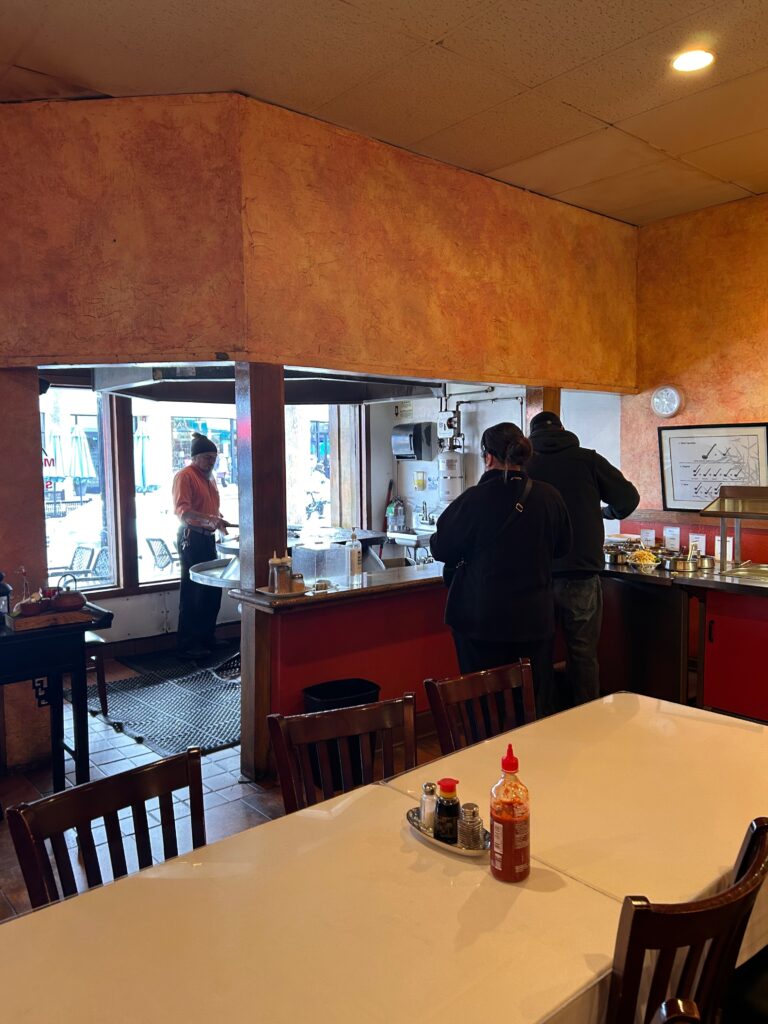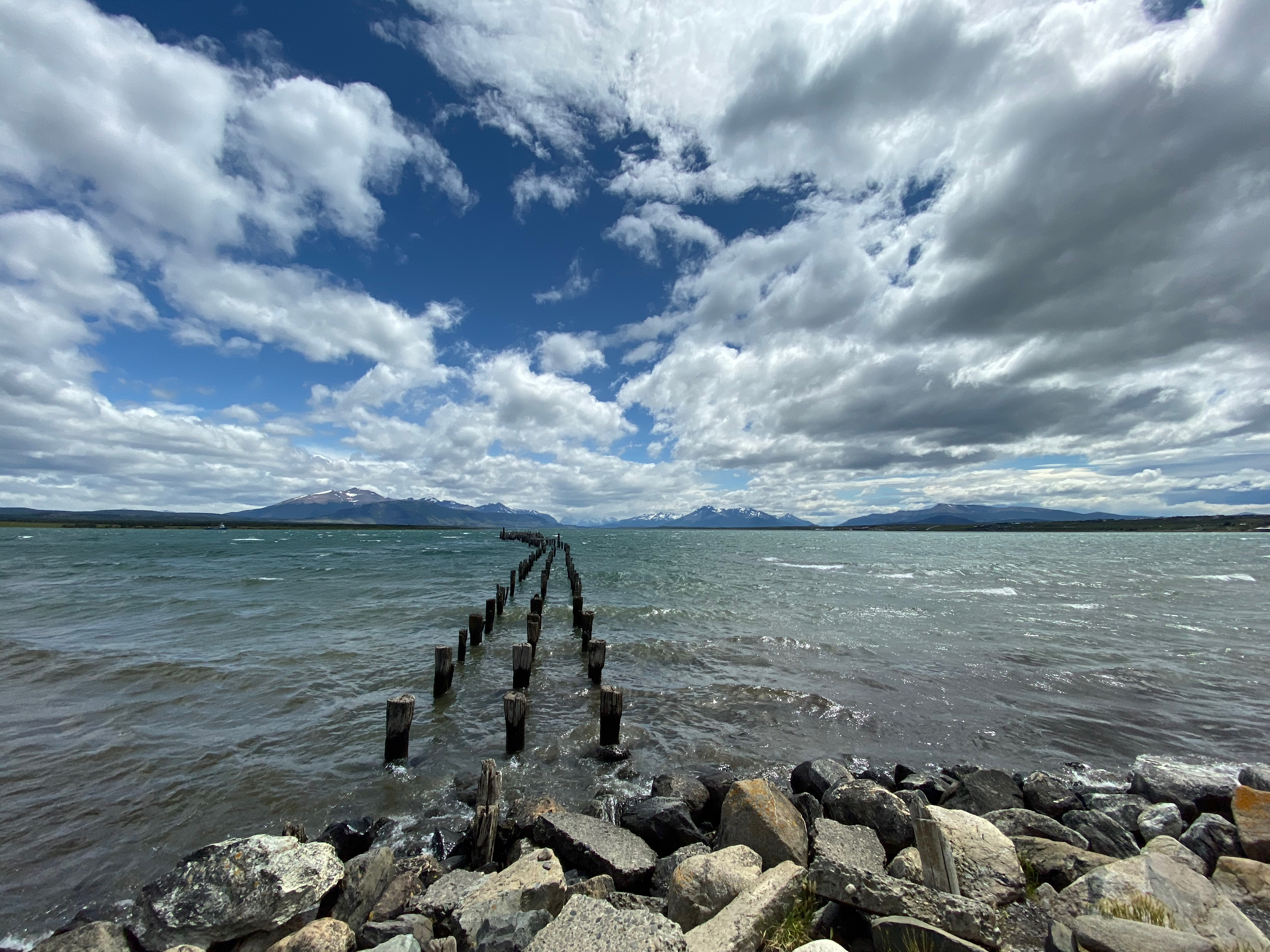-
Why hiring is so difficult for entrepreneurs
Talking to a friend and partner today reminded me what’s really so tough about hiring. You have expectations about that person, you invest an immense amount of time with them and try to follow them in everything (new ideas, investments, resources, you name it). To then find out they underperform or cannot meet those expectations and/or things will not work out.
This specific was for a sales director but it reminded me how difficult it is to find the right people and how many of us are simply trying to get that right multiple times a year. Probably among the most challenging things you ever need to do (and do over and over again) and the reason why hiring is a top priority a for CEOs.
I’ve been there so many times. But when you have someone that meets those expectations, exactly as you imagined, well that’s something rare you should appreciate.
Stefano
-
Lessons from the US
I flew to San Francisco for the first time exactly 13 years ago. In 2012 I simply decided to spend a month in the city and discover the US for the first time. I remember getting out of the Montgomery bart station and feeling like I was in a new world.
Back then I was running my very first company, WeTalk. I had built this tech community in Italy called HostingTalk when I was 19 and tried to transform that into a business selling to all the Italian ISPs and building a professional community for people interested in webhosting, domain names and servers.
While I was lucky to have my business, completely bootstrapped and paying me a good salary, I felt I needed something else. It’s difficult to remember now what it was exactly, but I remember going to my office and thinking “What will be different today?”. Part of that was the frustration of having built a business in Italy for Italian companies. It felt like a cage after a few years.

Stanford is still one of the most inspiring places in the US. I had the pleasure to attend a class about entrepreneurship deliver by a close friend of mine. Since 2012 I came back to the US hundreds of times, I’ve built a business here (Cloud Academy, the brand got shut down in 2024 after I sold it to a PE firm – you know, big mistakes give you bigger learnings). I lived in SF for a few years and learned a lot from everyone I met. Customers, friends, colleagues. It changed me in so many ways.
I am currently back to open the US market for Anthropos and I was just reflecting on what makes the US so special for people building things. It would be a mistake to think that’s Silicon Valley.
My experience working with americans is that a lot of what I am saying here it’s in their culture and it applies to most of them. Silicon Valley is simply where all of that gets to another level.
Embedding entrepreneurship into the society
People build things, they quit jobs to try to build their venture, they connect entrepreneurs to people and jump into things taking risks.
I met an almost retired highschool teacher two days ago. He taught business for 23 years. They have a special class where students get to understand differenet businesses, how they get built and they simulate creating one themselves. My friend Parsa was his student back then. Today he runs a company.
I believe this would be the easiest and most effective way to build more companies in Europe and in Italy: teach people what it means to build a company, why it’s cool and it can be great for the society. Yes, Europe is the land of bureaucracy, but that’s a problem for another day. Entrepreneurs will find their way no matter what.
Connections, feedback and hard work
Early on I thought people were simply kind with me. They connected me with their contacts, made intros and sponsored me in ways that felt confusing to me at first. Why are they doing this with me? What do they want in exchange?
Yesterday night I pitched 20+ people and got great feedback for Anthropos and our AI Simulations. It felt so great.
The lesson learned is that this is the powerful secret of a culture that loves to connect and help entrepreneurs. Why? Because there is respect for people building things and everyone wants them to succeed. They know they will create jobs, wealth and prosperity.

This trip I’ve been traveling to NY to meet a new partner (this is a beautiful take of Colorado mountains I guess while flying from SF). He found us online about a year ago and reached out of the blue wanting to learn more about our AI Simulations at Anthropos. I know a lot of my European friends look at this as pure capitalism and they say that with a bit of reluctance. We should put that thought to bed once and for all and stop chasing an ideology that gave us countless rules for every aspect of our lives from leaders that had no problem watching our continent being at the bottom of every ranking and still celebrating their lack of pragmatism with new regulations. Investing in entrepreneurship works, look at where the US are today and where the EU is. Work-life balance is so better in Europe, but who will pay our pensions? Are we sure that a comfortable life that incentivize taking no risks will give us a bright future?
Who will explain to our kids that while the world was inventing the future of work with AI our top leaders were regulating cookies on websites with our approval?

The Mongolian BBQ in Mountain View – back in 2014 I spent more than a year in Mountain View because of 500Startups (Cloud Academy was selected in Batch 11). The team and I used to come here a lot on weekends. Not a fancy place but a special one for me! A few months back someone told me what we don’t need to work harder (while I was asking for that), but smarter. It’s the classic BS I hear in Europe. It comes from the same problem. Hard work is not celebrated, it’s something you report to your HR team.
It’s easy to say that there is more capital here. It’s true but that’s a consequence. Entrepreneurship is built in the fabric of the US society, it’s celebrated and taught in school. That is the difference.
Is it too late for Europe?
When I mention what I do in Switzerland (and Italy) people think of me as someone that is likely rich and works a few hours per day. It’s a cultural thing. Europe doesn’t love entrepreneurs and even less do Italians.
I understand why they think that, it’s what they taught us. But in the era of YouTube and AI, where you can learn whatever you want from the best people in the world, it’s time to put an end to this way of thinking. It’s not doing us any good, is it?
I always hope people will be more in favor of rebelling to another stupid regulation or law Bruxelles decides to impose us. I always hope they will simply ignore that and focus on building. I am confident it will start happening for young people and they will break this system. I simply hope it will not be too late. History taught us that it takes centuries to recover for such mistakes.
The younger Stefano that was building Cloud Academy 13 years ago today feels a lot more tired typing this while jumping from one flight to another, from a meeting to a call. But nonetheless I cannot help myself but still feel amazed by the drive and ability of America to help entrepreneurs build the future. We have lots to learn.
Stefano
-
Why the US
I could try to explain why trying to close a deal with a 4000+ people company for $80k ultimately requires CEO approval in Europe or you could read this piece from the FT on what makes the US special:
Why America’s economy is soaring ahead of its rivals
The US go at a speed that is not comparable to Europe and people there make decisions fast. The opposite of everything it happens in Europe!
-
Founders and private equity
Companies are usually the reflection of their founders. They have their virtues, their principles and their way of doing things. They obviously inherit their personality, bad or good.
When you remove the founders, you lose it all. And with that, most of the times you lose the reason why that company was successful in the first place. Most companies never recover and they simply go on to become zoombies. Mediocre products, unmotivated teams and flat revenues.
If you are new to this world, you might ask “why are founders so critical?”. There are many reasons, but the only two that matter are: because they have the gut to follow their instincts and they are the most knowleadgeable about their business, industry and market.
When founders are in charge and have commitment, they solve problems no other executives will ever solve and they create products that you will never have without them.
Why private equity doesn’t work for founders
Because in PE there is no appetite for risk. Zero. Nada.
There is no appetite for new products that are working just in the founders’ mind and little interest in waiting months or years to test things out. Founders are visionaries, they are stubborn, sometimes arrogant but willing to take big bets. PE is not like that and the people you work with have never “lived” or “built” a company. They come from great business schools and have financial knowledge.
Most importantly, your vision, your intuition and everything else isn’t of interest to them. Your company is a spreadsheet and ebit is the only thing that matters.
This is why you often hear how bad it is PE for tech companies and for their founders. Tech is about innovation, bets and creating something that doesn’t exist yet. It’s not what private equity is about, it’s actually the opposite.
Sometimes it works, but it rarely works keeping founders at the helm. Founders can make a ton of money with PE (nowadays, unfortunately, that’s often the only exit strategy), but they rarely maintain their companies or stay there for long.
A well balanced read about PE for founders: https://www.saastr.com/rise-private-equity-saas-gift-founders/
-
I miss how the web used to be
Some days, I wake up to the Internet and wish it were still 2010.
I feel like I’ve had enough of the influencers, the everything-coaches, and the constant content creation pressure for every person and business. And yes, I miss people on the internet helping you or commenting your content because they care and want to help. I miss forums a lot and everything they somehow represented. Every single place on the internet became a way to show off, sell you something, or get your likes. It used to be a lot different than that. When I started my first website (it was actually called p2pzone) or later on when we started HostingTalk people loved to contribute and help.
And still, I know I have to face another LinkedIn wall that tells me everything I do wrong and that person does right. I know their amazing product link is in the first comment, and I know their company is not doing as well as they say. There are more people lined up there to answer and contribute to the conversation, just to get a bit of visibility too.
The sad part about all of this is that I somehow need to play with this like every other person running a business online.
I know I’ve said this already; is there a way back to 2010?
Stefano
-
5 learnings building Cloud Academy for 10+ years
I promised myself I would have tried to list down learnings from my 10 years building Cloud Academy, my previous company where I was CEO and co-founder. I left the company in September 2022.
I will start with some that I’ve been thinking about a lot. I will start today and hopefully I will add some more over time.
- Everything starts small, everything
- Trust the compounding effecft
- You can’t work with mediocre people
- You shouldn’t do what others do
- Demand customer obsession from your team
1. Everything starts small, everything
Like any business, we started small. This is something I keep reminding myself years later: every company starts small. When I drive on the highway I love to look at the many companies you see and ask myself how to they got there. How did they become a 100, 1000, 10000+ people company? They started small, with one or two founders and an idea. Even the biggest business in the world started there.
It’s something I really strive to remind myself because it motivates me and it gives me hope. Building a business takes 10+ years and everyone started small. It’s possible, things will grow and change as time passes.
2. Trust the compounding effect
I wish someone explained this to me 20 years ago. The compounding effect is one of the most impressive things you can experience in life. While building a business you should remind yourself of the power of compounding. If you write 2-3 articles about your product every day, for 10 years, you will likely achieve millions of visits and those articles will rank in the first page of Google. The same happens with everything for your product: that could be a newsletter, building an audience or adding features.
Do that every day. The first month you will feel bad, like you are going nowhere. After 12 months things will be slightly better and you will see the first results but you will still doubt yourself from time to time. When you do that for 10 years, every single week, you will be amazed by how much progress you made. It happened and you almost did not notice it. We did that on several things at Cloud Academy, some more than others but every time we have been consistent with that, results have been impressive.
Entrepreneurs that are incredibly dedicated and consistent in their execution always go far. It’s just a question of time. Whenever I find myself starting something new I like to think about the compounding effect of repeating that for 2-3-5 years and the results that it will create. My day immediately gets better and I find the right motivation to keep going.
3. You can’t work with mediocre people
Like every entrepreneur I used to try to make everything work. It’s a good principle and it works with almost everything assuming you have time: you can try and try again until it works. But it doesn’t work with mediocre people. If you are working with someone that is mediocre, it will be almost impossible to change that and your business will ultimately suffer. Your best people will leave when someone mediocre is in power and sometimes even when that person is just part of the team.
Get rid of mediocre people as soon as possible. It’s better not to be able to do something that having someone mediocre executing on it.
There is not much else to say on this point mostly because there is no solution to this problem if not letting mediocre people go!
4. You shouldn’t do what others do
What I mean with this is the following: don’t do what everyone else in your space does (in terms of software, product, marketing, sales playbook, you name it) because you think they are winning. You don’t know that, you are just looking at the final results (sometimes with bias) and don’t know why they are doing that! Great companies are created when people stop following what everyone else does and start creating something new, without knowing what will happen. A similar principle applies to competitors.
In these 10 years I’ve worked with brilliant people that could see the future, constantly taking risks and innovating, but also with people that spent 30 years in their industry trying to do whatever their competitors would do, always fearful of trying something that was not sustained by market research and tons of data. In the end, the latter always lost. They got beaten by competitors and by smaller companies that did not have any fear of trying something new. Most importantly: they got defeated without seeing that coming. When they realized that, it was simply too late.
As entrepreneurs it’s difficult sometimes to trust ourselves but it’s important to have the courage of trying something new. Build software that doesn’t work like every other software in your space and simply ignore how everyone else had done that until now. It could be a business model, it could be your marketing strategy or your product. Do something unique, that others are not doing. If you succeed, it will give you a competitive advantage that is difficult to achieve otherwise.
At Cloud Academy we have built enterprise software that looked very different from our competitors. We did not even look at some of them and we created functionalities and features that were considered “useless” in our industry. It took us quite a lot of time, but those features became incredibly powerful and customers would pick us because we were different.
We couldn’t have done any of that listening to people that told us to follow the “rules” and do what the market was expecting us to do.
5. Demand customer obsession from your team
We could have done better here. It’s a learning I really try to keep in mind. The moment your engineers don’t care about your customers’ issues anymore, you are in trouble.
Everyone likes to say they are customer obsessed but it’s difficult to see that in action and even more difficult to make it happen in your organization. Your team needs to be reminded every day that customers are their #1 priority. Ideally you need to have strong rules in place to make sure everyone takes care of customers and does that quickly, always with a smile. I can’t think of a better combination to grow your business: customer obsession + sense of urgency.
Looking back I would have loved to do more on this matter. Your customer support and success team should be measure on speed and ability to really be obsessed by helping customers. But so needs to be the rest of your organization: I hate listening to engineers or PMs complaining about customers, and I hate even more seeing customers’ problems becoming just one of the many things listed in the backlog. It usually goes like this “If we do this for them, we will need to do that for all the other customers as well” or “This account is small, they did not pay enough for having priority support” or “If they wait until Monday it will make no difference“. That’s when I started shacking! All of that is wrong. The way you operate with small customers defines you as an organization. You know why? Because small customers become large customers and if they stay small…they talk to a lot of other small, medium and big customers.
Customer obsession is something you need to build in your culture from day 1. From the CEO to the last person in the company, everyone needs to talk to customers and be obsessed by them. And if you think your team is not acting with that principle in mind, stop everything and make it a big deal until everyone understands that customers are their #1 priority. When you do this everything else becomes easier, starting with sales and renewals. Most importantly, your customers know they are your #1 priority and they will think twice before leaving you.
-
Leaving Cloud Academy
After 10 years I am leaving Cloud Academy. It feels strange to write it but I am getting used to the idea by now and it’s time to get back to writing.
We started Cloud Academy in 2013, even if we really started working on it in 2012. I was 24 back then and if I look back there are a few things that come back to mind: in 2012 I was running another company in Italy, I did not know much about the US, I did not speak English (not well, at least) and the only way I thought you could build a company was bootstrapping it.
Back then Cloud Academy was a bit more than idea and we were trying to understand what it could have been a few years later. I felt confused about it, not sure it was the right idea but the more we worked on it the more passionate we became about it. Everything changed a lot in 10 years, our product did, our vision improved and evolved and we matured as founders. Reading my emails of 10 years ago is a fantastic experience!
Cloud Academy has been an incredible journey for me and for everyone that has been a part of it. From day we obsessed on creating something unique and I feel we achieved it. I can’t use a post to describe what I’ve learned and how it changed me, but I am planning to write a few more to remember all the lessons we have learned.
When you build a business like Cloud Academy and scale it to millions in revenues and hundreds of people, the most important thing you remember when you leave are people. Not the product features, not the contracts, not what you have done in that business trip. Your thoughts and memories are full of people and I am planning to talk a lot about what I have learned about people and companies. The idea is to share lessons for new founders, executives, managers and anyone else is involved in building a new company.
This is it for now 🙂
If you are wondering: I am good, Cloud Academy was my life for 10 years so losing it meant losing a part of me but I am fine!
Stefano
-
Back to blogging
Many years ago I used to write a lot. I used to write every day, sometimes multiple articles, that’s how I started p2pzone, hostingtalk and later on also Cloud Academy. I was young and with that I did not have much fear of what people what have thought about my writing, which I think is a strong advantage.
I miss writing and now that I have a lot to think about (more in the upcoming posts), I will try my best to go back to writing!
-
Going long
Most companies require 10-15 years to get to something meaningful. You, as a founder, will spend that time to grow, grasp and finally master your product and your market. Your company will become very similar to you and so will your culture.
I have been extremely fascinated by the idea of building something that doesn’t have an expiration date. Call it IPO, exit. Nothing.
Going long allows you to always make the right decision for your customers and most importantly, for your people. It forces you to always prioritise what will make them successful and have the time to keep doing it over and over. And with that comes an operational and financial discipline in running your company that it’s difficult to build otherwise.
The aspect that I love the most about it? Having the time to really build something great, whatever it takes in terms of months or years.
It took me a while to understand that this would probably the best thing I would enjoy as an entrepreneur in my future venture. Going long.
-
Patagonia
There are places you simply pass by and there are places that stay with you. Patagonia is definitely one that stays with you. Nature at its best.
I couldn’t ask for a better start of 2020, refreshed and ready for a year of change.
Skip to content




